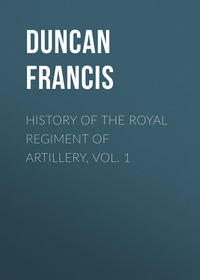Читайте только на Литрес
Книгу нельзя скачать файлом, но можно читать в нашем приложении или онлайн на сайте.
Читать книгу: «History of the Royal Regiment of Artillery, Vol. 1», страница 7
Что-то пошло не так, попробуйте зайти позже
Покупайте книги и получайте бонусы в Литрес, Читай-городе и Буквоеде.
Участвовать в бонусной программеВозрастное ограничение:
12+Дата выхода на Литрес:
28 сентября 2017Объем:
592 стр. 204 иллюстрацииПравообладатель:
Public Domain
